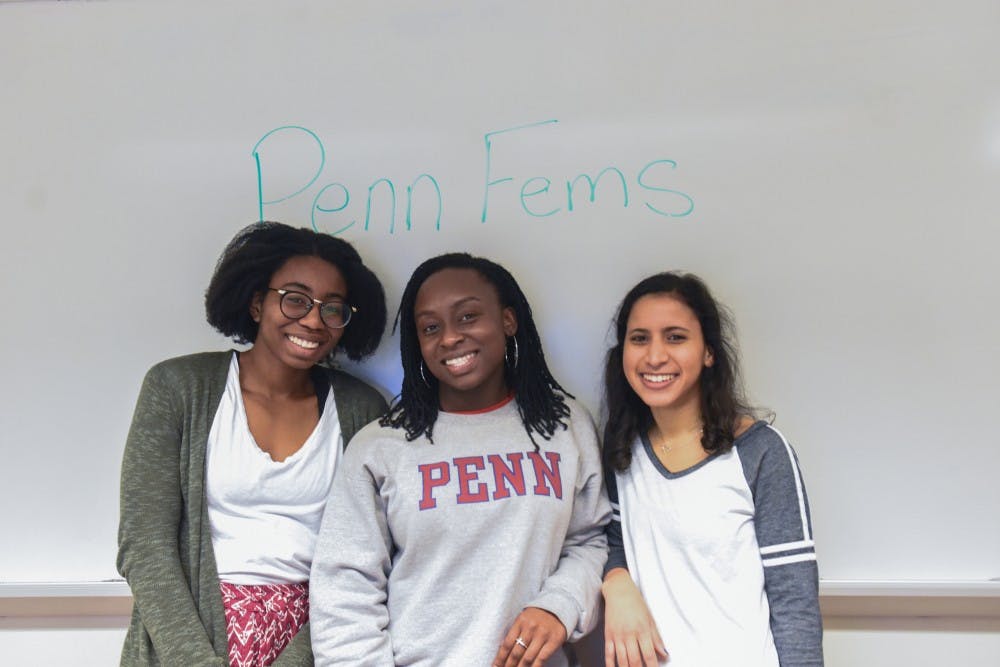
In the wake of the recent firestorm surrounding accusations of sexual assault in the media, a PennFems event at Kelly Writers House discussed the popular #MeToo campaign on Thursday evening.
The meeting included discussions of the role of racism in the campaign, the controversy over what extent of sexual assault the #MeToo tag covers, and the effectiveness of the campaign. While open to anyone who wanted to attend, the meeting consisted of half a dozen members of PennFems, a feminist student organization that hosted the event.
“We wanted to talk about the intricacies of the event that weren’t necessarily covered by mainstream media,” said College Sophomore and PennFems chairperson and founder Donnisa Edmonds.

Initially started by activist Tarana Burke, the #MeToo campaign is a social media campaign dedicated to sharing the stories of survivors of sexual assault. The movement now has caught on to millions of people sharing their own experiences of sexual assault and harassment.
The attendees said they believed one of the major problems with the #MeToo campaign is that some high profile supporters of the campaign are trivializing the message of the movement.
PennFems member and College sophomore Tunika Onnekikami mentioned that during the 71st British Academy Film Awards, while many attendees wore black clothing and donned white roses in solidarity with the #MeToo movement, the media criticized Kate Middleton for wearing green.
She added that she disagreed with this method of activism as representative of the #MeToo movement.
“It’s like, 'Oh, I’ll support you from afar. I’ll put on this little rose thingy, [and] wear black,'” College sophomore and PennFems Educational Chair Desteni Rivers said. She expressed doubts that peoples' mindsets about sexual assault would be changed in personal situations.
The conversation also addressed that while the campaign was started for low-income black women, the #MeToo cases that the media covers predominantly focus on celebrities. The attendees expressed worry that the attention might take away from the stories of survivors who are more low-profile.
“Harvey Weinstein’s getting sued by New York — what about [all other sexual assault cases]?” Edmonds said.
However, the group also noted that the media attention on cases involving celebrities led the campaign to reach a wider audience.
"People in power who were thought of as untouchable were given consequences,” Edmonds added.
Later in the discussion, attendees talked about whether or not the movement was ineffective in providing survivors with support and lowering the number of sexual assault cases on college campuses.
“I read this tweet that said, ‘Why does everybody know someone who’s been sexually assaulted, but nobody knows someone who has sexually assaulted someone?'” Onnekikami said.
She added that she believes the campaign gives survivors a platform to share their stories but doesn't provide tangible support.
The PennFems discussion about the #MeToo movement comes in the wake of controversy over sexual assault and harassment policies at Penn.
In September 2017, Graduate Employees Together — University of Pennsylvania, a graduate student organization seeking recognition as an official union, launched a petition advocating for better sexual harassment reporting policies.
In the University Council Open Forum on Feb. 21, students raised issues with the reporting system of sexual violence at Penn and discussed their own experiences at Penn.
The Daily Pennsylvanian is an independent, student-run newspaper. Please consider making a donation to support the coverage that shapes the University. Your generosity ensures a future of strong journalism at Penn.
Donate






